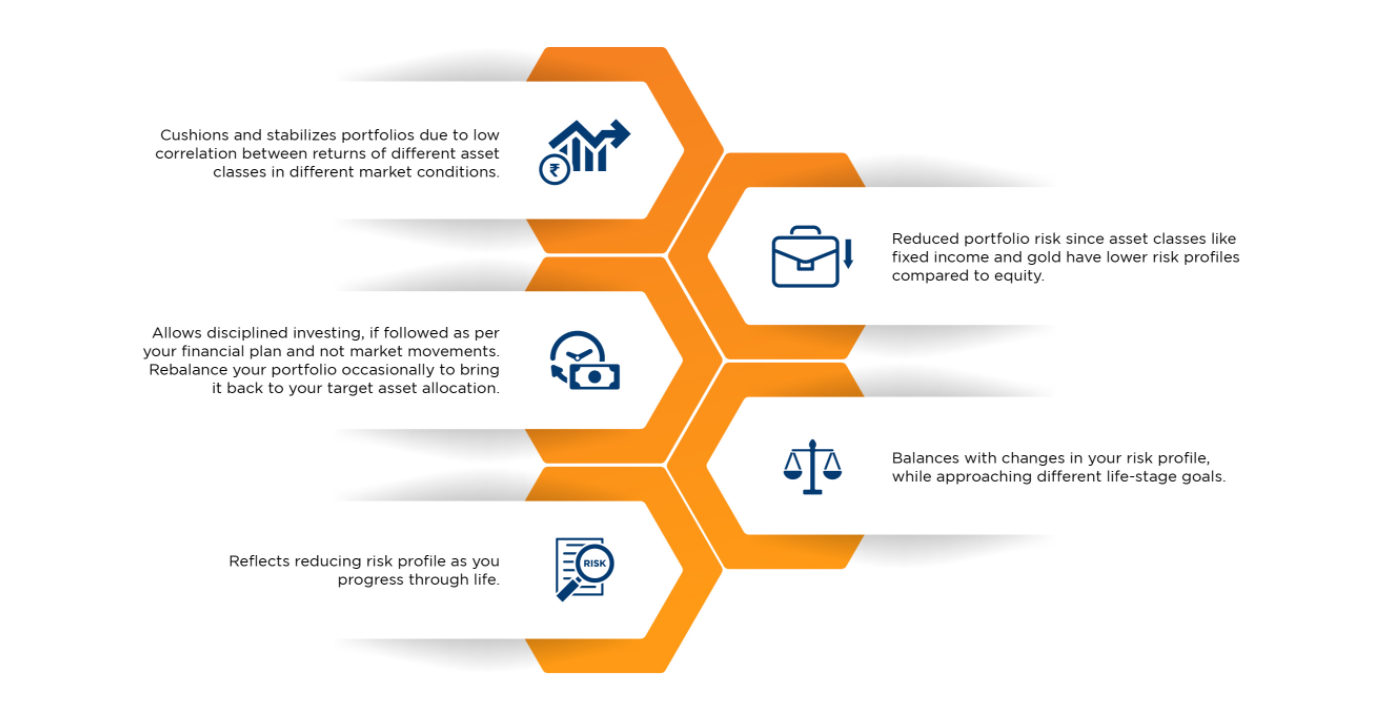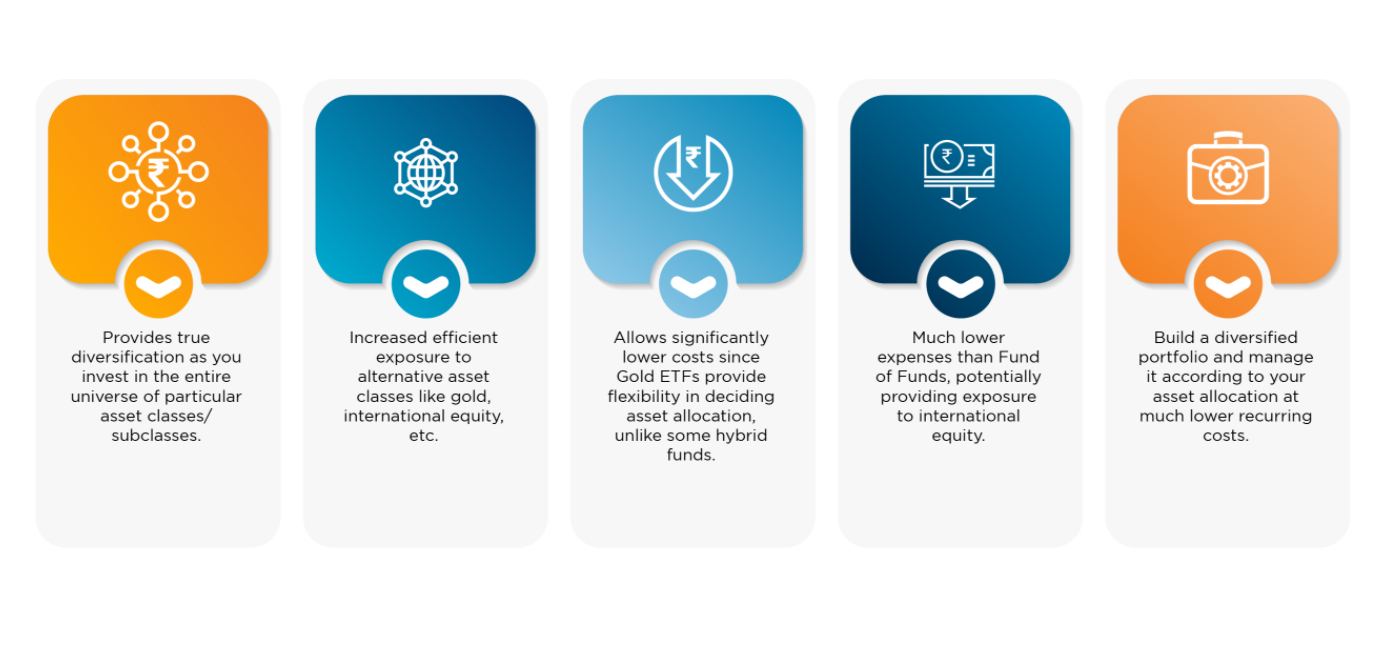Asset Allocation through ETFs
Asset allocation is a strategy to diversify your investment across different asset classes. Different asset classes like equity, fixed income, gold etc have different risk / return characteristics. By investing across different asset classes you can balance risk and return. Your asset allocation should be according to your risk profile and investment needs. Research shows that asset allocation is the most important performance attribution factors of portfolio returns.
Benefits of asset allocation

What are ETFs?
Exchange Traded Funds or ETFs are passive funds which aim to replicate the performance of a market index like Sensex, Nifty etc. Unlike actively managed funds, ETFs do not aim to beat the market benchmark index. ETFs also replicate the price of commodities like Gold. ETFs are listed in stock exchanges and trade in exchanges just like shares of listed companies. You need to have demat and trading account with a stock broker to invest in ETFs. You can buy or sell ETFs in the stock exchange during market hours at prevailing market prices. You can also invest or redeem ETFs with the AMC in lot sizes specified by the AMC for the ETFs.
Benefits of ETFs
- Fund managers of actively managed schemes have to be overweight / underweight on some stocks / sectors relative to the benchmark. As a result there is some unsystematic risk (stock or sector specific risk) in addition to market risk in actively managed funds. ETFs, on the other hand, invest in a basket of securities which represent a particular market index. For example, a Nifty 50 ETF will invest in all the 50 stocks which constitute the Nifty 50 index in the same weight as it has in the index constitute. Therefore, there is no unsystematic risk in ETFs; they are subject only to market risks.
- ETFs which track market cap weighted indexes automatically have lower weights for underperformers and higher weights for strong performers. This is due to the index methodology.
- It is much simpler to invest in ETFs compared to actively managed funds. There are a number of factors to consider in selecting active funds viz. fund category, performance track record of the fund manager in different market conditions, how many years the fund manager has managed the scheme, investment strategy of the scheme, expense ratio etc. When selecting ETFs you have to decide which asset class (e.g. equity, debt etc) and then invest in a low cost ETF.
- The biggest advantage of ETFs is low cost. The TER of an ETF can be 1.5 to 2% lower than actively managed funds. On an investment of Rs 10 lakhs you may be gaining as much as Rs 15,000 – 20,000 every year in ETF compared to an actively managed fund (assuming same performance before expenses). Over long investment tenures this can result in considerable difference in returns due to the power of compounding.
Asset allocation through ETFs
.jpg?sfvrsn=617ced1_2)
Benefits of asset allocation with ETFs

For information on one-time KYC (Know Your Customer) process, Registered Mutual Funds and procedure to lodge a complaint in case of any grievance Click here!
Mutual Fund investments are subject to market risks, read all scheme related documents carefully.

.jpg?sfvrsn=b3893a6d_2)